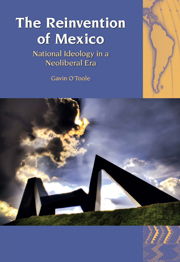Introduction: Salinas, ‘the Unmentionable One’
from I - Nationalism and Liberalism
Summary
‘Reform was an ideology and conviction during my period in government’
Carlos Salinas de GortariIn Mexico's fiercely contested elections of July 2006, two battle-scarred ideas confronted each other: nationalism and neoliberalism. In the nationalist camp stood Andrés Manuel López Obrador, the candidate of the Partido de la Revolución Democrática (PRD); in the economically liberal camp, Felipe Calderón of the ruling Partido Acción Nacional (PAN), the continuity candidate. Calderón won by a whisker – 35.89 per cent to 35.31 per cent – provoking an infuriated López Obrador, the challenger riding the wave of left-wing sentiment that has swept across Latin America since 2000, to denounce the electoral outcome as fraudulent.
Yet, despite their differences, both men had much in common, for both were champions of political traditions that have been locked in a fateful, and perhaps even perpetual, struggle for supremacy that has been at the heart of Mexican development since the nineteenth century yet has always been cut in contemporaneous cloth. By a dramatic irony, the struggle between Calderón and López Obrador revived the atmosphere of an ideological confrontation during elections in 1988 that had a remarkably similar outcome. On that occasion, a forceful neoliberal technocrat, Carlos Salinas de Gortari, had become president after the most closely fought elections in Mexico's post-revolutionary history, the results of which favoured the then ruling Partido Revolucionario Institucional (PRI) but were denounced as fraudulent by the left-wing coalition draped in the colours of Mexican nationalism that was challenging it.
- Type
- Chapter
- Information
- The Reinvention of MexicoNational Ideology in a Neoliberal Era, pp. 3 - 22Publisher: Liverpool University PressPrint publication year: 2010

